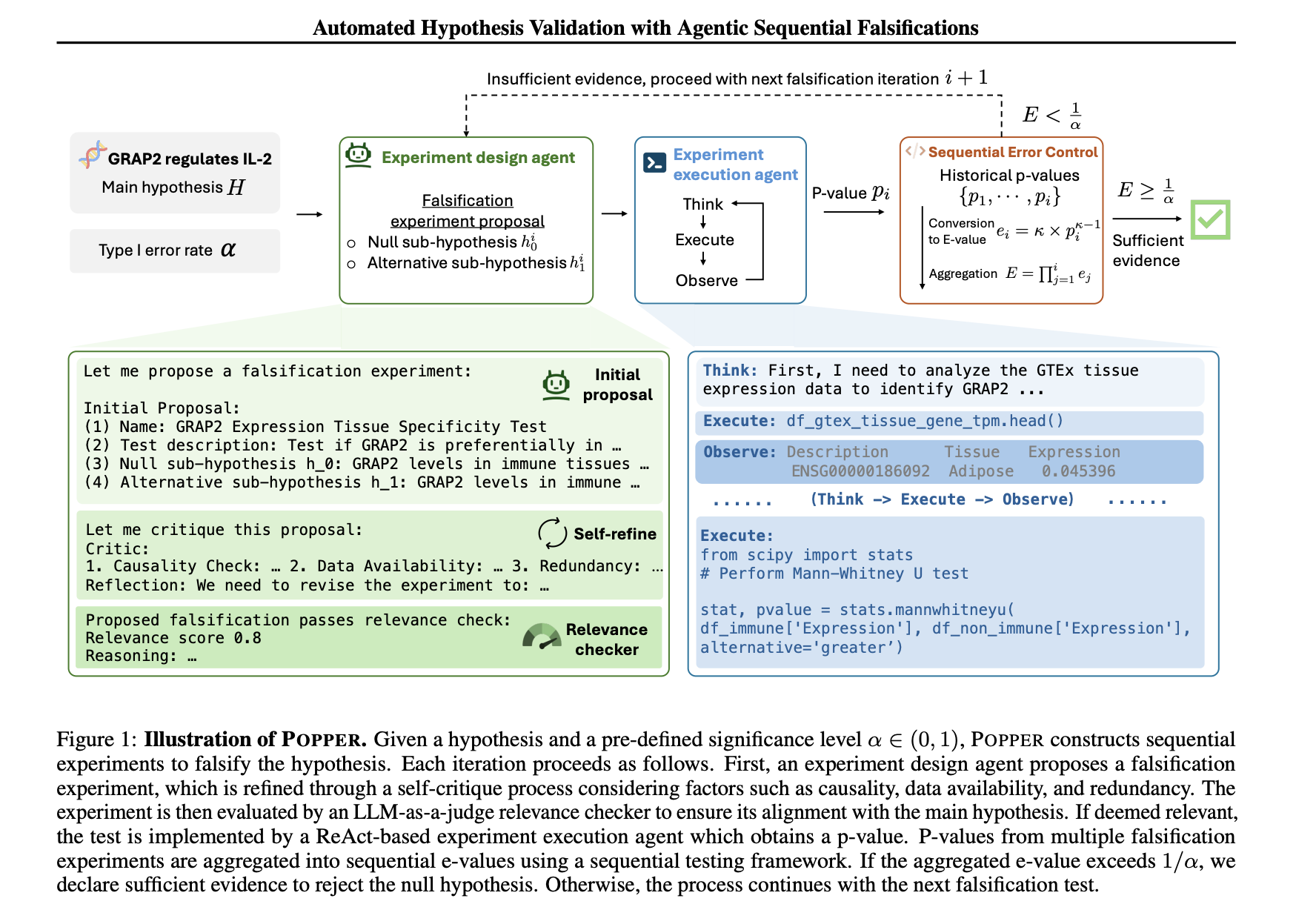
Understanding Hypothesis Validation
Hypothesis validation is crucial in scientific research, decision-making, and gathering information. Researchers in various fields like biology, economics, and policymaking depend on testing hypotheses to draw conclusions. Traditionally, this involves designing experiments, collecting data, and analyzing results. However, with the rise of Large Language Models (LLMs), the number of generated hypotheses has surged, complicating manual validation.
The Need for Automation
Many real-world hypotheses are abstract and hard to measure. For example, saying a specific gene causes a disease is too broad. The increase in AI-generated hypotheses can lead to inaccuracies, making it challenging to identify which ones are worth investigating. Traditional validation methods often fall short, risking misleading outcomes that can affect research and policy.
Introducing POPPER
Researchers from Stanford and Harvard have developed POPPER, a framework that automates hypothesis validation using advanced statistical principles and LLM-based agents. POPPER focuses on disproving hypotheses rather than proving them, which enhances the reliability of scientific inquiry.
How POPPER Works
POPPER uses two AI-driven agents:
- Experiment Design Agent: Creates falsification experiments.
- Experiment Execution Agent: Conducts these experiments.
Each hypothesis is broken down into testable sub-hypotheses, which undergo rigorous testing. POPPER continuously refines its validation process, ensuring only well-supported hypotheses progress.
Key Features of POPPER
- Iterative Testing: Sequentially tests hypotheses, improving efficiency.
- Type-I Error Control: Minimizes false positives, maintaining statistical integrity.
- Dynamic Adaptation: Adjusts based on previous results, refining hypotheses continuously.
Proven Results
POPPER has been tested across six fields, including biology and sociology, with impressive results:
- Type-I error rates below 0.10 across all datasets.
- Improved statistical power by 3.17 times over traditional methods.
- Validated hypotheses in one-tenth the time compared to human researchers.
Key Takeaways
- POPPER automates hypothesis falsification, reducing manual workload.
- Maintains strict error control for scientific integrity.
- Accelerates validation processes, enhancing scientific discovery speed.
- Utilizes e-values for dynamic evidence accumulation.
- Proven effectiveness across multiple scientific disciplines.
- Matches human accuracy while significantly cutting down validation time.
Embrace AI in Your Organization
To stay competitive and leverage AI effectively, consider the following steps:
- Identify Automation Opportunities: Find key areas for AI integration.
- Define KPIs: Ensure measurable impacts from your AI initiatives.
- Select an AI Solution: Choose tools that fit your needs.
- Implement Gradually: Start small, gather data, and expand wisely.
For AI KPI management advice, contact us at hello@itinai.com. For ongoing insights into AI applications, follow us on Telegram or Twitter @itinaicom.
Discover how AI can transform your sales processes and customer engagement at itinai.com.


























